Raise Capital
November 5, 2025
From $200M in VC to $72.5M in Retail: Why Pacaso Opened Their Cap Table to 17,500 Investors
After raising over $200M from top-tier venture capital firms, Pacaso made a bold move: opening their cap table to retail investors through Reg A+. The result? $72.5M raised, 17,500+ investor-advocates. Here's why they did it, how they got their board on board, and what other founders need to know.
The Discovery That Changed Everything
When Austin Allison, CEO and co-founder of Pacaso, joined DealMaker CEO Rebecca Kacaba for an exclusive webinar, he opened with a surprising admission and a clear acknowledgment of partnership value.
"Rebecca, thanks for having us today and thanks for your partnership in our Reg A offering. It was really a pleasure to work with you and the team," Austin began. "To be honest, I wasn't even aware of Reg A as an option a year and a half ago. It was something that kind of stumbled across our desk somehow."
This is the reality for most founders today. Despite Regulation A+ raising over $9.4 billion from more than 800 issuers since its modernization in 2015, many venture-backed companies don't even know it exists as a strategic option for growth-stage capital raising. Combined with $1.3 billion raised through Regulation CF, online capital formation has become a proven alternative to traditional venture capital.
What started as Pacaso exploring Regulation A+ for their financing business quickly evolved into something much bigger. As Austin, David Willbrand (Pacaso's Chief Legal Officer), and their board worked with the DealMaker team to dig deeper into the opportunity, they became "so bullish on this as a channel that it seemed obvious to us that this is how we wanted to raise our fourth round of capital."
But this wasn't just about finding another way to raise money. It was about alignment with something core to Pacaso's identity.
Democratization as Mission, Not Marketing
For Pacaso, the decision to open their cap table to retail investors wasn't a tactical pivot. It was a strategic extension of who they already were as a company.
"What Pacaso does as a business is democratizes access to luxury vacation homes," Austin explained. "Prior to that, the company that I was with, Zillow, which my co-founder Spencer Raskoff led as CEO for about 15 years, was about democratizing access to information. So Reg A is about democratizing access to the opportunity."
This alignment matters more than founders realize. When your capital strategy reinforces your brand mission, it creates authenticity that resonates with both investors and customers. You're not just asking people to invest, you're inviting them to participate in the same vision you're building for your market.
For Pacaso, that meant giving their community the same access to ownership that they provide for luxury vacation homes. The symmetry was powerful, and as soon as they recognized it, "we knew that this is the way that we wanted to raise our next round of capital."
The Real Value: 17,500 Evangelists vs. Two Board Members
One of Austin's most compelling insights came when he compared venture capital to retail capital in terms of actual business value, something he now shares with other founders who reach out to learn about Pacaso's approach.
"One of the things that I say when I'm talking to other founders, many of which have been reaching out by the way, because most founders and even investors were like me a year and a half ago, they aren't even aware that Reg A exists," Austin shared. "When they learned about Pacaso and our offering, they call and they ask me questions, and what I always explain to them is that when you raise money from venture capital, you get one or two additional people around the table."
He continued: "Don't get me wrong, they're amazing people. Our venture capital partners are incredible. They're super helpful, super smart. It's great to have them around the table, but it's very different than having tens of thousands of retail investors who are aware of the company, who believe in the company, who are out there evangelizing for the company."
This is the strategic advantage that most founders miss when they only think about capital raising in terms of dollars secured.
The Marketing Multiplier Effect
What makes retail capital particularly powerful is how the same audience serves dual purposes. Every dollar spent acquiring an investor isn't just raising capital, it's simultaneously building your customer base and brand awareness.
"It's like knocking out two birds with one stone when you can raise from a large audience like this," Austin explained.
For Pacaso, this meant that their investor acquisition strategy doubled as customer acquisition. The people investing in Pacaso weren't just putting money into the company, they were becoming the exact demographic who would use Pacaso's luxury vacation home service. The marketing spend delivered immediate returns through capital raised AND long-term value through customer relationships.
Research from Bain & Company shows that customer-shareholders spend 54% more than non-shareholders, creating measurable enterprise value increases. Meanwhile, McKinsey research demonstrates that word-of-mouth marketing is the primary factor in 20-50% of all purchasing decisions, and marketing-induced word-of-mouth generates twice the sales of paid advertising.
With venture capital, you get:
- Smart, experienced board members
- Strategic guidance and introductions
- Validation from respected investors
- Access to follow-on funding
With retail capital through DealMaker, you get all of that plus:
- 17,500+ brand ambassadors spreading awareness organically
- Customer-investors with 54% higher spending than traditional customers
- Real-time market intelligence and product feedback
- A community that compounds in value with each interaction
- Marketing spend that raises capital AND acquires customers simultaneously
- Word-of-mouth marketing that drives 2x the sales of paid advertising
The community capital model transforms your cap table from a list of shareholders into a strategic asset that strengthens every aspect of your business. Companies like LiquidPiston have raised $50M+ across five campaigns from 17,500+ shareholders, while Miso Robotics raised $104M+ from 31,000+ investors, proving the long-term value of turning investors into brand champions.
Getting the Board to Say Yes: VCs as Partners, Not Obstacles
One of the most common questions founders have about retail capital raising is simple: How do you get your board and existing VCs on board?
David Willbrand, who as CLO oversees Legal, People, Capital Markets, Corporate Development, and External Affairs at Pacaso, walked through their experience navigating this conversation alongside the DealMaker team.
The board's initial concerns were predictable:
- Execution complexity and resource requirements
- Regulatory compliance and ongoing reporting obligations
- Valuation considerations and pricing dynamics
- Time commitment required from leadership team
The Partnership Approach That Changed Everything
The breakthrough came when the team reframed the conversation, working closely with DealMaker to show the board how retail capital complemented rather than competed with institutional investment.
"The key was showing that Reg A+ isn't just fundraising," David explained during the strategic planning process. "It's a marketing and community-building tool that strengthens your position with institutional investors rather than competing with them."
The venture capitalists ultimately supported the retail raise because they recognized several important dynamics:
Market Validation: When 17,500 individuals put their own money into your company, it validates your market thesis in a way that institutional rounds cannot. It proves real people believe in what you're building. For Pacaso's VCs, this represented powerful third-party validation of their investment thesis. Research from Cambridge shows that institutional participation in equity crowdfunding grew from 8% to 49% between 2015 and 2017, demonstrating increasing recognition of retail validation.
De-Risking for Institutions: Retail capital actually de-risked Pacaso's business model for institutional investors by demonstrating broad market appeal and creating a distributed base of support. The VCs saw their investment becoming more valuable, not less. Academic research confirms that successful crowdfunding campaigns facilitate venture capital attraction rather than competing with it.
Strategic Advantages: The VCs recognized that customer-investors, brand evangelists, and community feedback would make their investment more valuable. They understood that 17,500 engaged shareholders would drive business metrics in ways that concentrated institutional ownership never could. According to KingsCrowd's analysis, companies backed by both retail and institutional capital show stronger performance metrics.
Brand Building at Scale: Running a successful capital campaign simultaneously builds brand awareness and educates your market, creating value that extends far beyond the capital raised. Boston Consulting Group research shows that customer advocacy programs achieve 10-20% revenue gains for established products and up to 100% gains for new products. The marketing benefits compound over time.
For founders considering this path, the lesson is clear: frame retail capital as a strategic complement to institutional capital, not a replacement. Show your VCs how tens of thousands of engaged investors strengthen the business in ways that traditional venture rounds cannot. Understanding how institutional investors view retail capital and developing comprehensive capital raising strategies is key to success. When positioned correctly, retail capital makes institutional investments more valuable, not less.
The Execution Reality: Partnership Makes the Difference
While raising capital from retail investors requires sustained commitment, the right partnership can transform the experience from overwhelming to achievable.
Working with the DealMaker team, Pacaso approached the raise as an integrated business initiative rather than a separate fundraising event. Every investor communication became an opportunity for brand building. Every milestone celebration engaged both customers and shareholders. Every product update reinforced why people invested in the first place. Strategic investor acquisition and full data visibility made it possible to optimize every aspect of the campaign in real-time.
David shared an insight about founder readiness that extends beyond just capital raising:
"You need to be able to speak to your vision about the company with as much enthusiasm and conviction and excitement the 1,500th time you're telling the story as the first. And that's not a natural instinct. The dopamine, you burn through it fast. There's a sense of will and commitment that's got to emerge."
He continued: "It's something that I see in Austin all the time. When he talks about Pacaso, you think that you're the first person hearing this from his heart the first time ever. It's probably the 10,000th time he's told it, but to you, it feels authentic and meaningful."
This authentic enthusiasm isn't just nice to have, it's essential. During a capital campaign, you'll be pitching constantly: to potential investors, to your existing community, to the media, to your team, to your family.
"If you can't do that as a founder, you're going to struggle," David noted, "because you're selling and pitching all the time. Employees, customers, partners, investors, your spouse, your family, you're always on and you've got to be able to come at it with that."
The Strategic Support System
What made Pacaso's execution successful wasn't just Austin's authentic enthusiasm, it was the comprehensive support system DealMaker provided throughout the process. From regulatory compliance to investor communications, from technical infrastructure to strategic guidance, having an experienced partner transformed a complex undertaking into a manageable campaign that delivered exceptional results.
The "One Thing" That Matters Most
When asked about the most important lesson for founders, Austin's answer was immediate and unequivocal: people.
He referenced Gary Keller's book "The One Thing," which focuses on identifying the single most important priority in any given moment. For Austin, that answer as a founder and CEO is always the same.
"If you have the right people around the table who are passionate about the mission of the company, who complement one another's strengths and weaknesses, who are at the right place in their life where they can invest the amount of effort that it takes to build a company from scratch, if you can put that combination of people together, it's really powerful."
The connection to retail capital raising is direct: when you have 17,500 investors, you're not just raising capital, you're assembling a community of people who are now connected to your mission. Done right, this becomes one of your most valuable assets.
"Great people in the right seats and power to do their best work tend to be able to solve any problems," Austin explained. "That's why I think it's start and end with people."
The Ongoing Attention: What Happens After the Raise
One of the most underappreciated benefits of retail capital is what happens after you close the raise. While venture capital provides periodic check-ins with board members, retail capital creates ongoing engagement that compounds in value.
After Pacaso's raise closed, something remarkable happened: the 17,500 investors didn't disappear. They remained engaged, active participants in Pacaso's growth story. They continued to evangelize the brand, share their experiences, provide feedback, and most importantly, become Pacaso customers themselves.
This ongoing attention creates a virtuous cycle. Investors follow the company's progress, celebrate milestones, and naturally spread awareness through their networks. When Pacaso launches a new market or introduces a new property, they have 17,500 people who care enough to pay attention and share the news.
Research from the Becker Friedman Institute shows that customer capital investment explains 70% of variation across industries and is linked to greater valuations of intangible assets. For publicly traded firms, sales and marketing spending (customer capital investment) averages 4.1% of revenue, with platform businesses investing over 20%. This academic research validates what Pacaso discovered: that investor-customers create measurable, lasting value.
David noted the compounding effect: "The marketing benefits don't end when the raise closes. In many ways, they're just beginning. You've built a community that stays engaged with every update, every milestone, every new product launch."
For founders, this means the capital you raise continues to deliver value long after the initial transaction. Your investors become a permanent marketing force, a focus group, a customer base, and a community of advocates all rolled into one.
The Awareness Gap Is Real (And It's an Opportunity)
Perhaps one of the most surprising revelations from the conversation was how many sophisticated founders and investors still don't know about Reg A+ as an option.
"Many of which have been reaching out by the way, because most founders and even investors were like me a year and a half ago, they aren't even aware that Reg A exists," Austin shared. "When they learned about Pacaso and our offering, they call and they ask me questions."
This creates a significant opportunity for founders who do their homework. While competitors stick to traditional fundraising paths, you can build strategic advantages they don't even know exist.
According to KingsCrowd's 2024 Investment Crowdfunding Report, Regulation CF raised $343.6 million in 2024 with 1,408 new launches, while the failure rate for crowdfunded companies stands at just 2.9%, far below the 60%+ failure rate for traditionally funded startups. The success rate for reaching minimum goals hit 69%, and 35% of successful campaigns go on to raise follow-on funding rounds. These metrics demonstrate that online capital raising has matured into a proven, reliable channel.
The founders who are discovering Regulation A+ and Regulation CF through platforms like DealMaker are gaining:
- Access to capital without giving up control or board seats
- Marketing and brand building simultaneous with fundraising
- A community of investor-advocates who strengthen business metrics (like LiquidPiston's 17,500+ shareholders)
- Validation that de-risks future institutional rounds (like EnergyX's path to a $50M Series B)
- Customer relationships that compound in value over time (like Mode Mobile's investor-to-customer conversion)
- Ongoing attention and engagement that lasts beyond the raise
What This Means for Other Founders
Pacaso's journey from $200M in venture capital to $72.5M in retail capital isn't just an interesting case study. It's a roadmap for how growth-stage companies can strategically leverage retail investors to build competitive advantages that traditional venture capital alone cannot provide.
Here's what other founders should take away:
Retail Capital is a Strategic Tool, Not a Last Resort Companies like Pacaso are choosing retail capital after successful VC rounds because they recognize the strategic value beyond just the dollars raised. This isn't about failing to secure institutional investment, it's about recognizing that different types of capital serve different strategic purposes. When positioned correctly, retail capital makes your VC investors' positions more valuable, demonstrating what DealMaker and institutional investors have proven about the power of retail participation.
Your Mission Should Align with Your Capital Strategy Pacaso's democratization mission made retail capital a natural fit. Look at your own company's core values and market positioning. Does opening your cap table to your community reinforce what you're building?
VCs Become Partners in the Process Don't approach retail capital as something you need to hide from your institutional investors. Frame it correctly, and they'll recognize how 17,500 engaged investors strengthen their investment. Board alignment requires reframing retail capital as a strategic complement that de-risks your business, validates your market, and creates compounding advantages through community building and brand amplification.
The Right Partnership Transforms Execution Working with an experienced platform like DealMaker transforms what could be an overwhelming process into a manageable, strategic campaign. Modern capital raising technology streamlines everything from regulatory compliance to investor communications, making comprehensive support the difference between struggling through and executing successfully.
Marketing Spend Delivers Double Duty Every dollar spent acquiring investors simultaneously builds your customer base and brand awareness. FeverBee's community research shows that community-based customer acquisition costs $40 per customer versus $85 through traditional methods, a 53% reduction. This dual benefit means your capital raise generates immediate returns through funds raised AND long-term value through customer relationships and organic marketing. Harvard Business Review research confirms that acquiring a new customer costs 5x more than retention, and a 5% increase in retention boosts profitability by 75%.
Ongoing Attention Compounds Value The benefits don't stop when the raise closes. Your investor community continues to engage with your company, celebrate milestones, provide feedback, and evangelize your brand. This ongoing attention creates compounding value that lasts far beyond the initial capital raised.
The Awareness Gap is Your Advantage Most founders don't even know Reg A+ exists. This means early movers can build strategic advantages while competitors stick to conventional paths. Education and awareness will increase over time, making now an ideal moment to establish your position.
The Compound Effect of Community Capital
At the end of the webinar, Austin shared a message with Pacaso's 17,500 investors that captures something essential about this model:
"I just want to say thank you. Thank you for your support. And most importantly, thank you for believing in our mission to enrich people's lives and make the world a better place."
He acknowledged the reality of startup investing: "I always say, there's no guarantees in startup investing. Any startup investment could go to zero. That is just a fact."
But then he emphasized the strategic bet those investors made: "I think you've bet on a great team, a great product, a great market opportunity. And I can tell you that we are working our tails off and we'll continue to work our tails off to grow this business and deliver a lot of value for all of you over time."
This is the real power of community capital. It's not just about the money raised in a single campaign. It's about building a base of people who are genuinely invested in your success, who will evangelize your brand, who will provide feedback and market intelligence, who will become your best customers and most loyal advocates.
The power of investor evangelism is backed by research: Nielsen studies show 88% of consumers trust recommendations from people they know over brand messaging, while McKinsey research demonstrates that high-impact recommendations are 50x more likely to trigger purchases than typical marketing. With 17,500 investor-advocates, Pacaso built a marketing force that compounds over time, demonstrating the strategic value of community ownership.
Every dollar raised through retail capital represents not just capital secured, but a relationship built, a brand ambassador created, a potential customer acquired, and a community member aligned with your long-term success.
That's the strategic advantage that compounds over time. And it's why companies like Pacaso are choosing to open their cap tables to thousands of retail investors, even after raising hundreds of millions from the world's top venture capital firms.
When you partner with the right platform to execute this strategy, the result isn't just a successful raise, it's a permanent strategic asset that strengthens every aspect of your business.
Ready to Explore Retail Capital for Your Company?
If you're a founder considering retail capital as part of your growth strategy, the first step is education. Learn about Regulation A+ and Regulation CF, understand the differences between offering types, review case studies from successful raises, and explore how companies like Pacaso have successfully executed campaigns that build lasting strategic advantages through partnership with experienced platforms.
The awareness gap won't last forever. As more founders discover what Austin discovered, retail capital will become a standard tool in the growth-stage fundraising toolkit. DealMaker has already processed over $2.3 billion in capital raises, facilitating more than 1.5 million investments and helping companies like EnergyX, LiquidPiston, and Miso Robotics build permanent investor communities.
The question is: will you be an early mover who builds competitive advantages while your competitors are still figuring out that this option exists?
Full Webinar Recording
------
Investing involves inherent risks, including potential loss of principal. We encourage thorough review of all provided financial documentation and comprehensive understanding of associated risks before making investment decisions.

Your submission has been received. We will reach out to you via email to schedule a call.
Oops! Something went wrong while submitting the form.



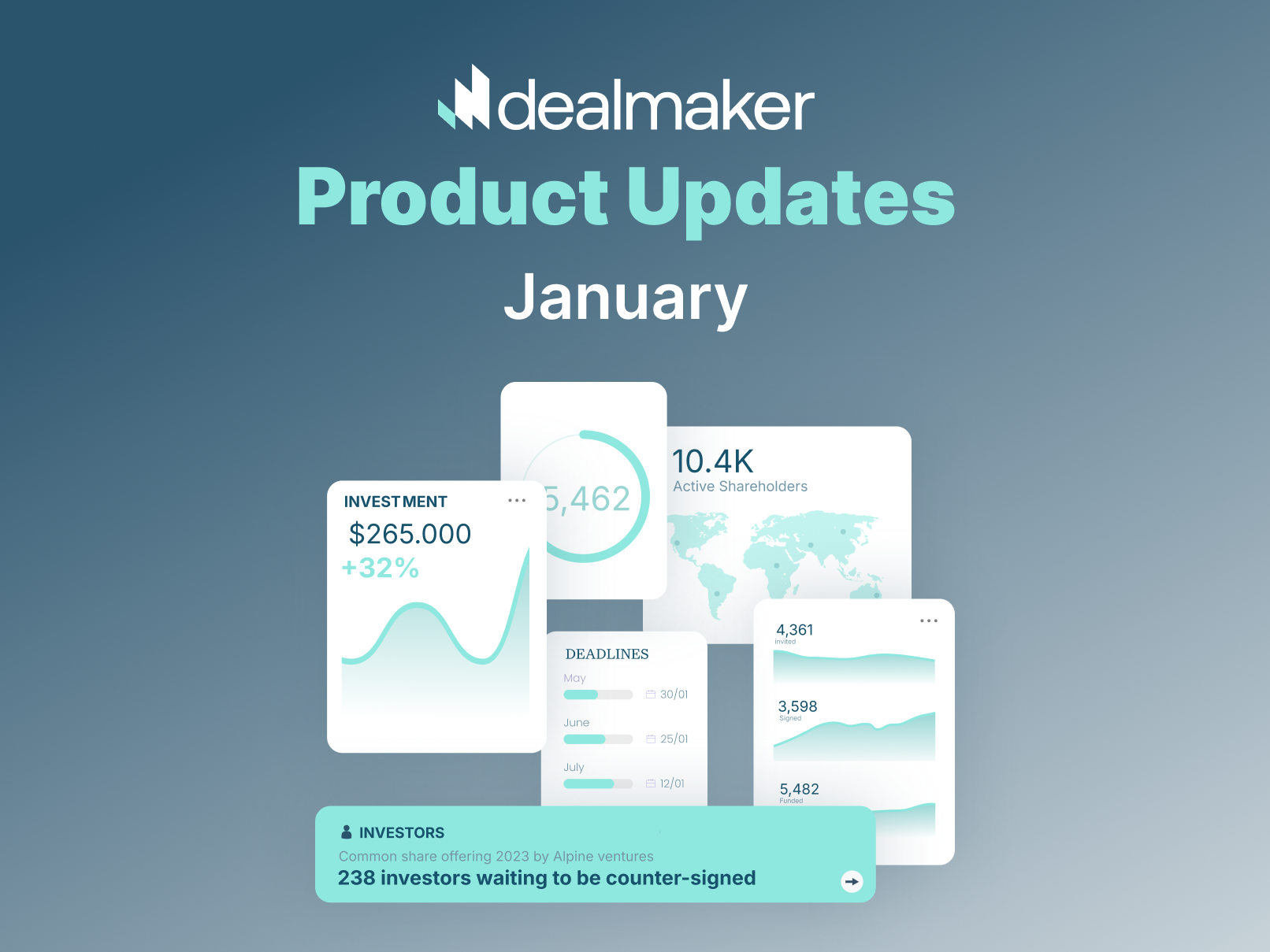
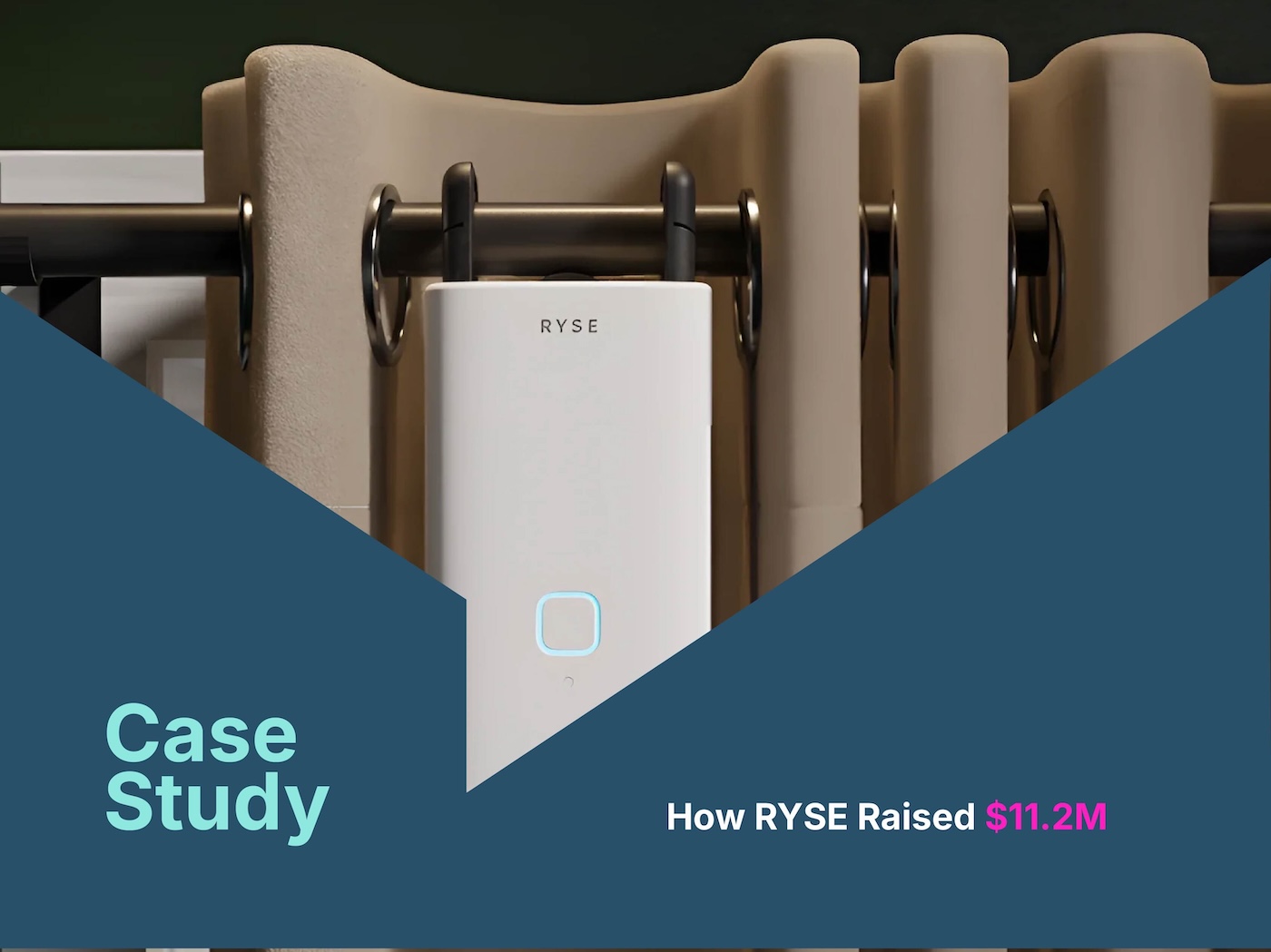
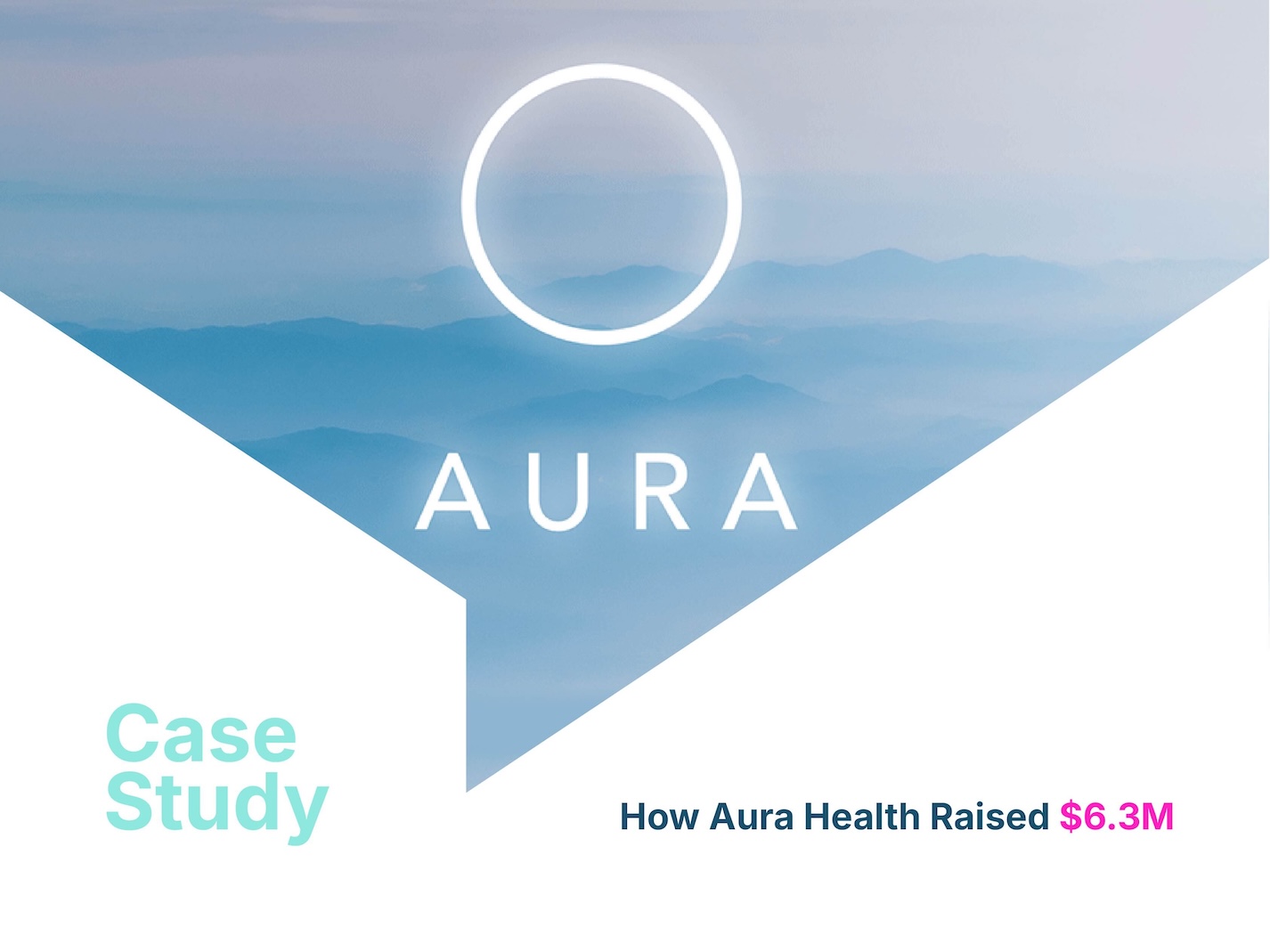
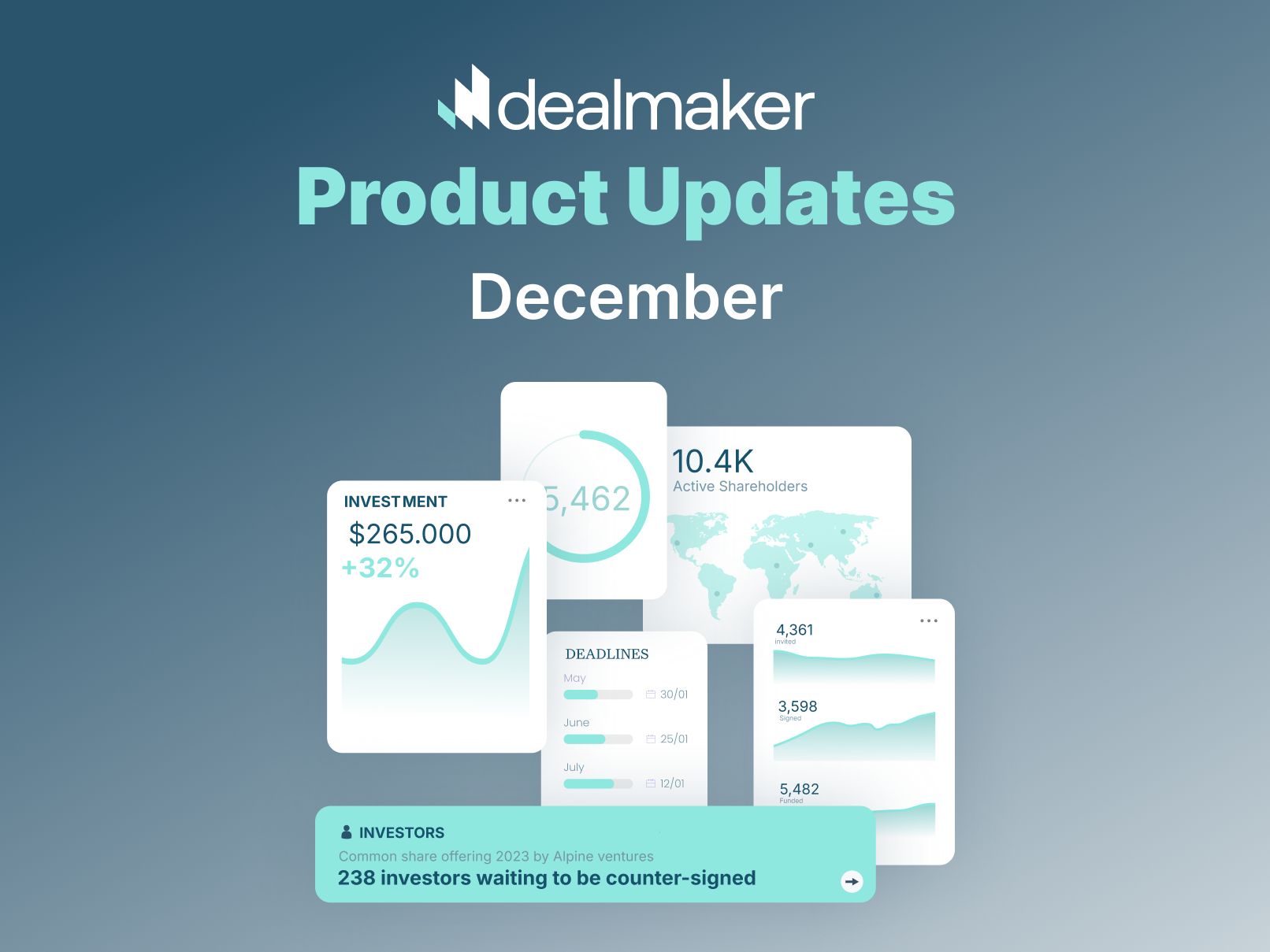
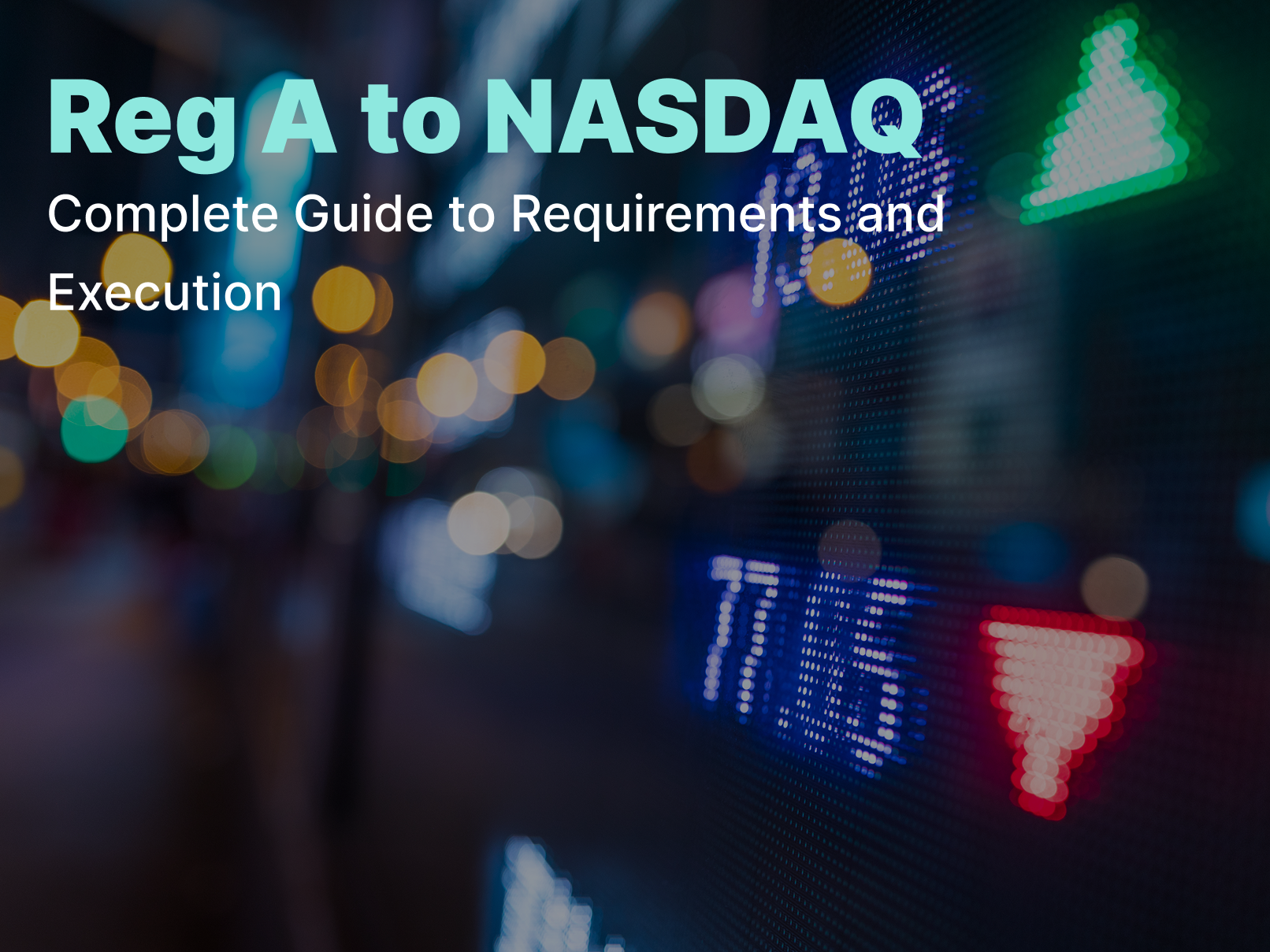
.png)
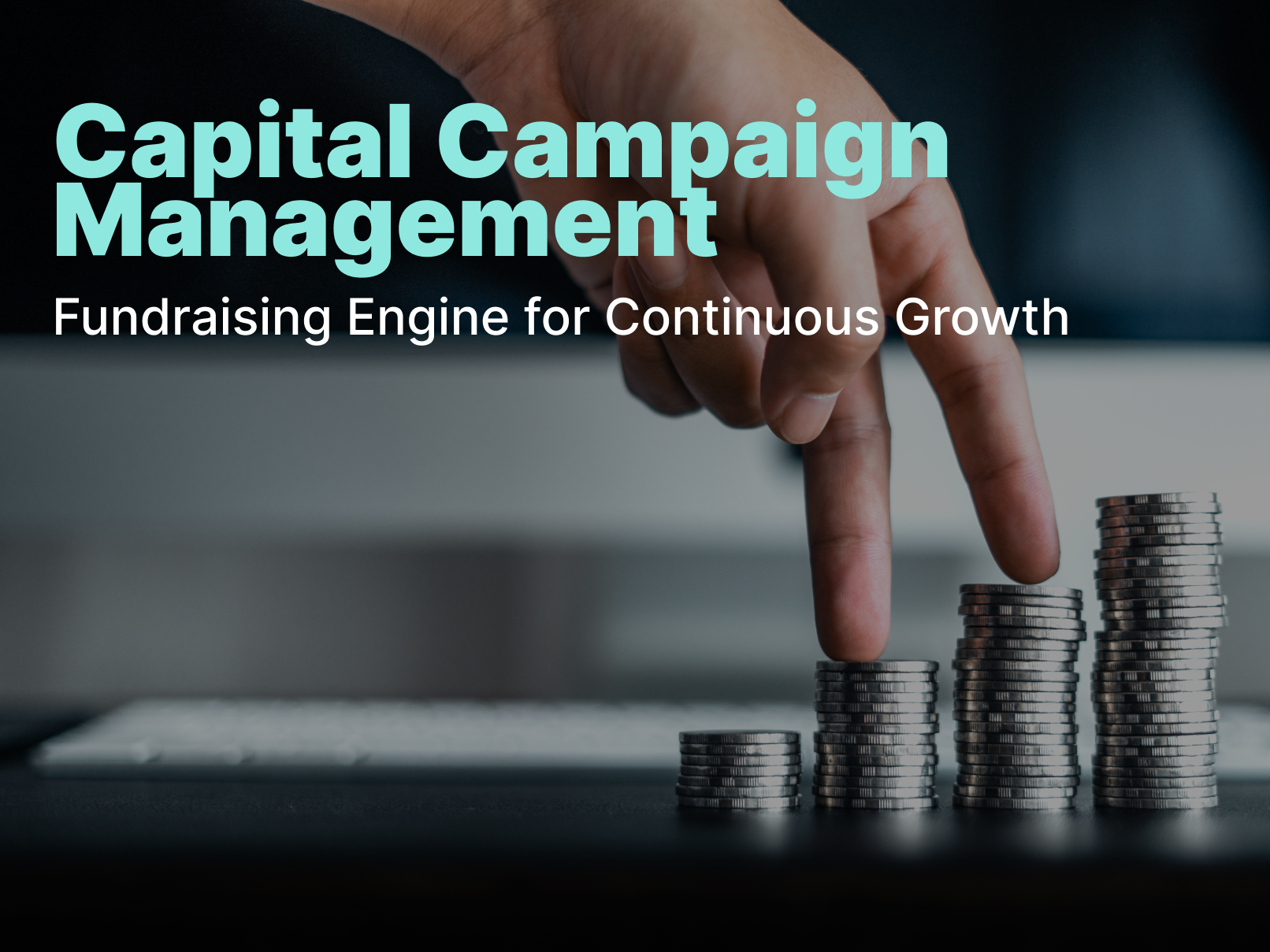
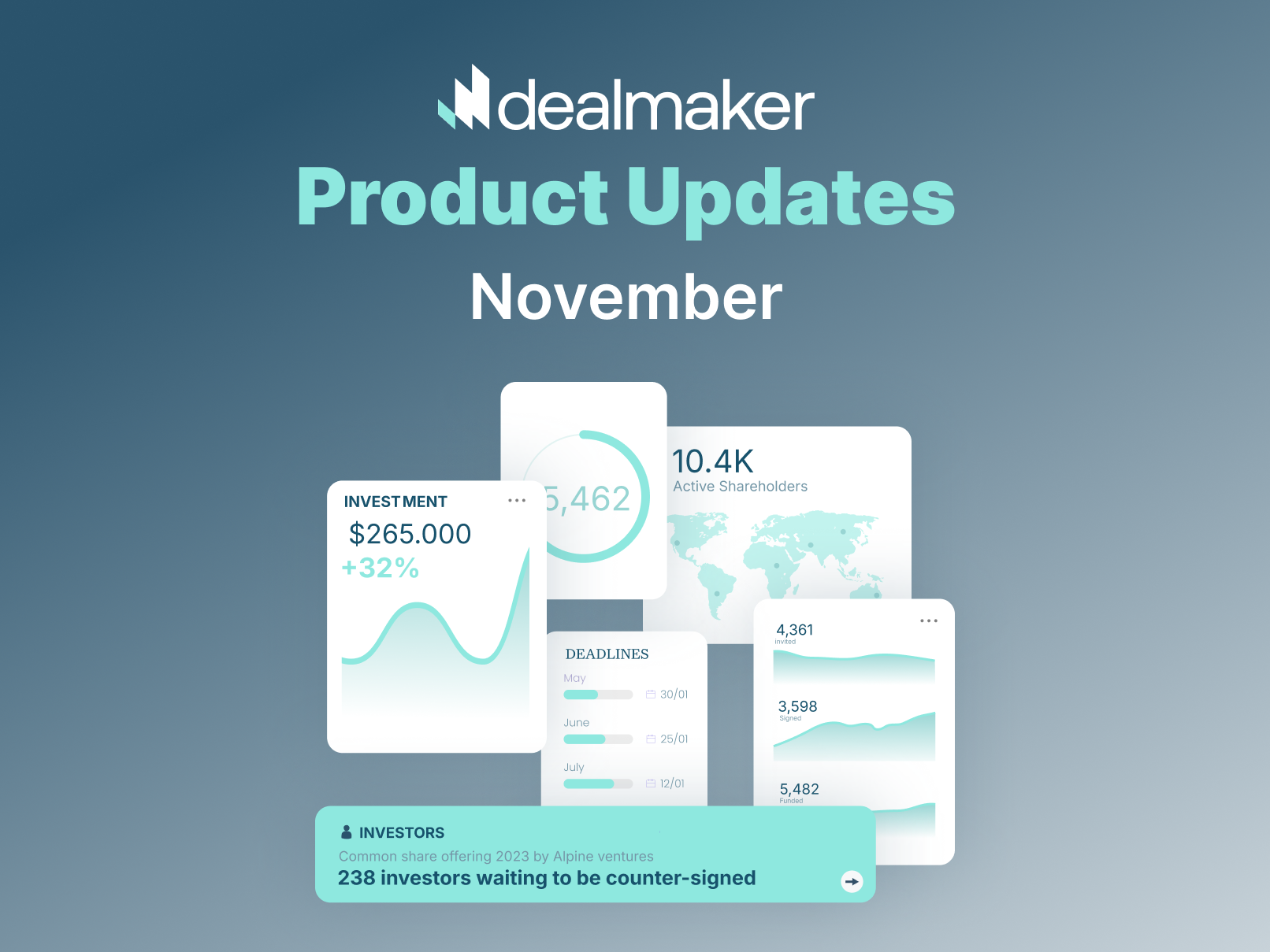
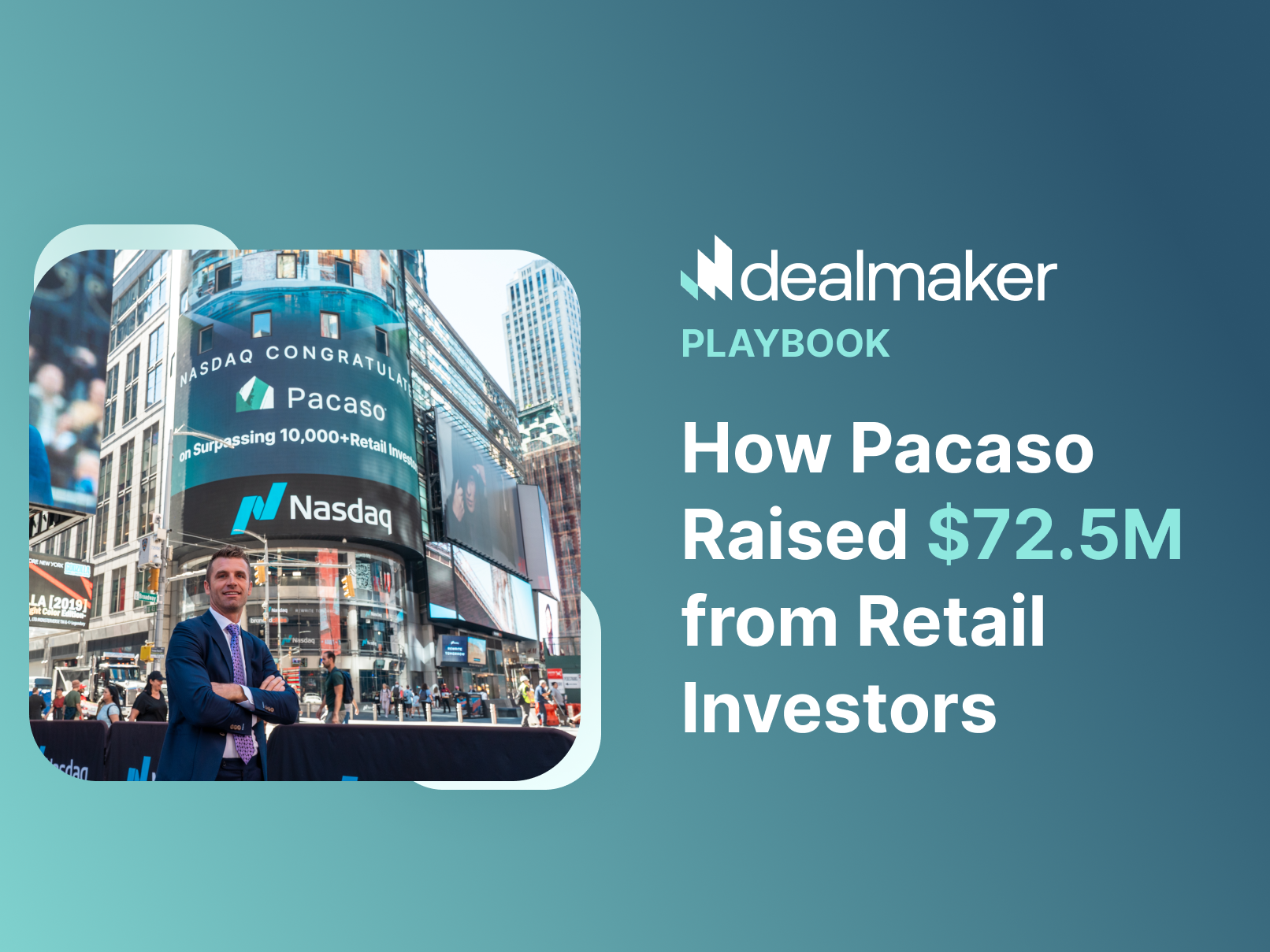
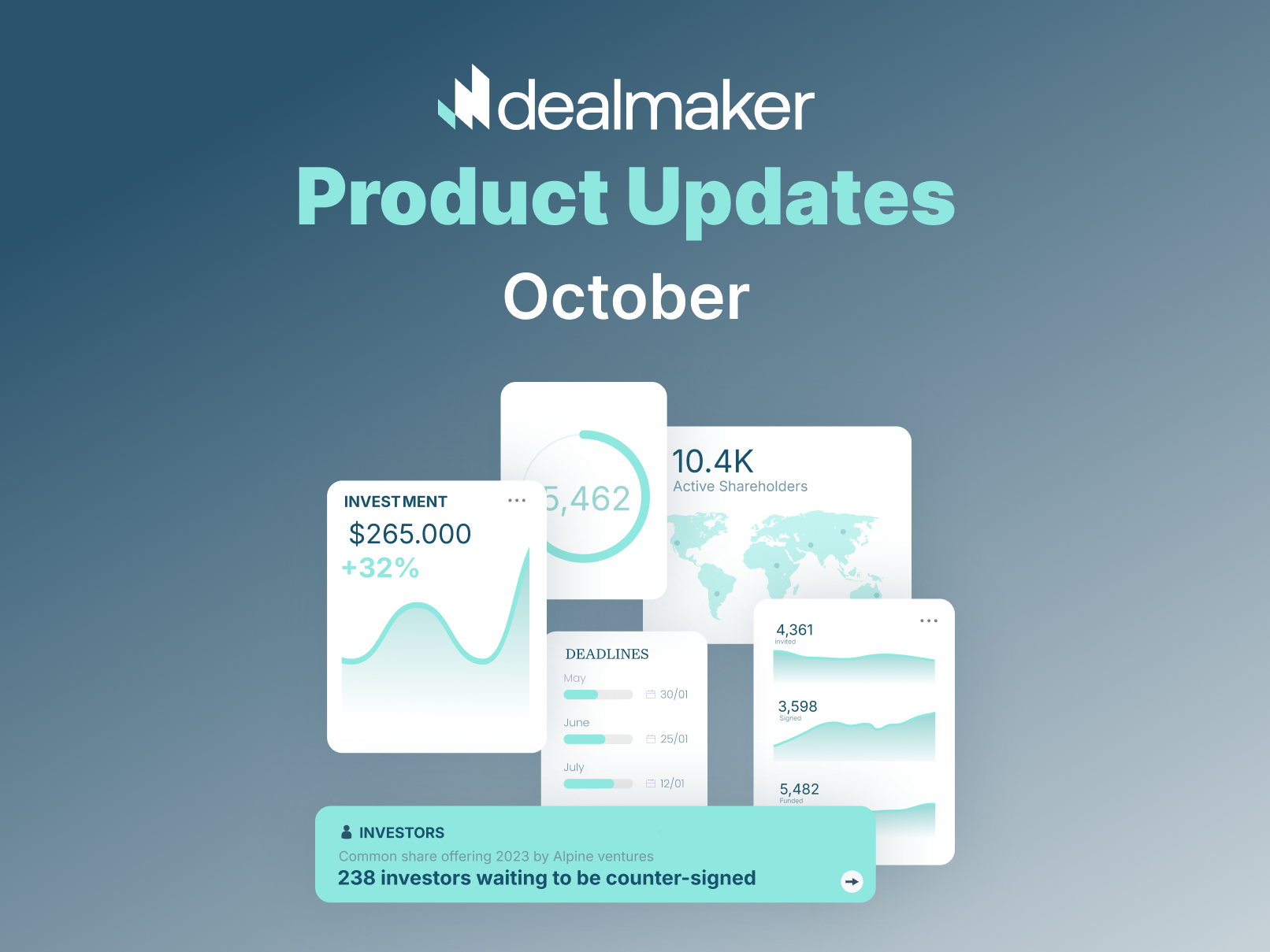
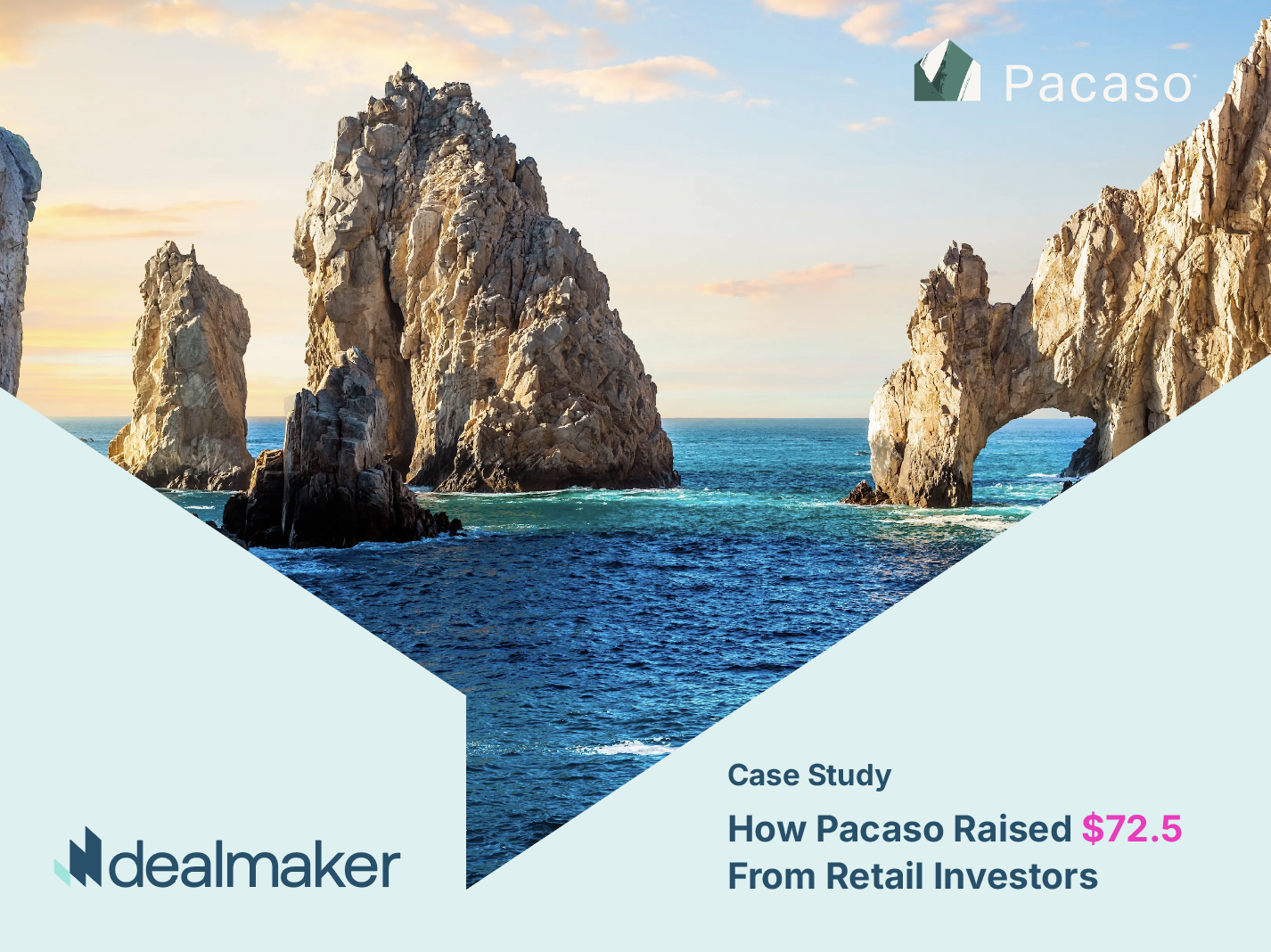
.webp)